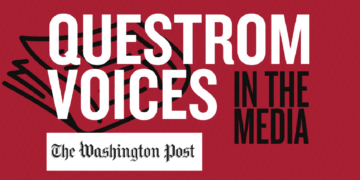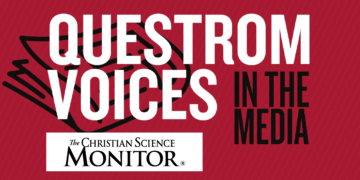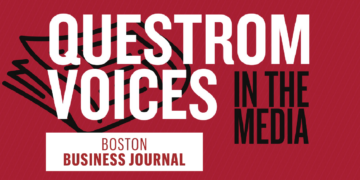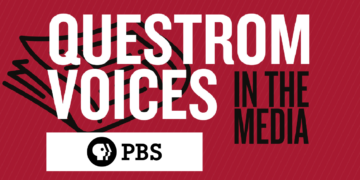Right now Mass. has 10% fewer licensed restaurants than New England average
Should Massachusetts scrap statewide rules capping the number of restaurants allowed to serve liquor in each city and town? The biggest yes signal is coming from the City of Boston. Recently, Mayor Michelle Wu asked state legislators for 50 more liquor licenses for Boston restaurants in underserved neighborhoods.
The mayor pitched her proposal as one for economic equity and empowerment, which would allow minority entrepreneurs to open eating establishments in poorer areas. But it is more than just Boston asking. Six other locales are requesting more licenses right now, ranging from Northampton seeking seven to Milton applying for one. These requests are clear signals the status quo needs to change.
The allowable number of licensed restaurants is tightly controlled by the Legislature based on rules written at the end of Prohibition, almost a century ago.
Restaurateurs want liquor licenses because in an industry with notoriously tight margins, alcohol boosts profitability. Serving alcohol helps a restaurant survive because liquor has a longer shelf-life and lower labor costs to prepare than food.
Unfortunately, getting a license is tough. When Prohibition was repealed in 1933, Massachusetts’s political leaders enacted strict caps on the number of restaurants that could serve beer, wine, and liquor. The rules, enshrined in the state’s general laws, determine the number of places allowed in each city or town serving food and drink based on one criterion: each city’s population.
While rules based on the population census may have made sense a century ago they make no sense today for five reasons.
First, these fixed rules do not account for changing eating habits. While eating meals at home was quite common when the rules were created, people eat out more today. Over the last quarter century US spending at full-service restaurants grew 50 percent more annually than spending on food at home after adjusting for inflation. Eating out more often means more restaurants are needed.
Second, tourism today is big business, but tourists don’t count in the rules’ population calculations. Massachusetts gets between three and four times its population in visitors each year. Official statistics show the state’s tourists grew dramatically from about 20 million a year in 2011 to 30 million just before Covid. All those visitors need a place to eat. The state should have almost 100 more licensed restaurants if each visitor ate only a single dinner out. Given most visitors don’t eat and run, the number of licenses should be even higher.
Third, city and town populations are determined by the federal decennial Census, which is known to undercount minorities and immigrants. The Urban Institute estimates about 3 percent of Blacks and Hispanics were missed in Massachusetts. This leads to the state’s poorer communities not only getting fewer federal aid dollars, but also fewer licensed restaurants.
Fourth, since the 1930s mobility has changed dramatically. In the late 1930s, about one in five Americans had a car. Today, there are more registered vehicles than adults. Unlike less mobile citizens of the past, today no one in Massachusetts thinks much about driving to another city or state to eat. This increase in mobility breaks the relationship between the number of restaurants and the city’s population they are supposed to serve.
Last, the law has the unintended consequence of helping only well-funded entrepreneurs interested in starting up large restaurants similar to what already exists. Innovators looking to try out new cuisines or risky concepts in a small restaurant typically cannot afford the legal fees, wait, and costs of obtaining a license.
The optimal solution is to scrap the entire section of state law regulating the allocation of licenses by community population and put all caps under local control. Doing so will help the state’s consumers by allowing more eating choices. This extra competition will drive prices down and service quality up.
One way to predict the impact of scrapping the rules is to compare Massachusetts to neighboring states. Government data show Massachusetts has about nine full-service restaurants for every 10,000 residents. This is 10 percent less than the average in neighboring New England states.
If Massachusetts opened as many establishments per capita as other states, that would result in about 700 more full-service restaurants. Given the typical Massachusetts restaurant employs about 22 workers, this would produce another 15,000 jobs, plus higher meal tax revenues.
This proposal would enrage some restaurateurs who have paid up to $600,000 to obtain a full liquor license. If political realities prevent scrapping the rules, the Legislature should eliminate limits on restaurants serving beer and wine before phasing in a full repeal.
Even without formal legislation, the Legislature can enact this solution by simply rubber stamping any city or town’s proposal to increase its cap. Eliminating the wait or uncertainty about getting a license will result in more restaurants opening.
Legislators have already tried out the proposal. As of 2012, limits on the number of places serving liquor at Logan Airport were dropped. The loosening of state control did not result in the airport experiencing a surge in alcohol related problems or protests by Logan’s restaurant owners.
Massachusetts is considered a liberal progressive state. It needs to get rid of repressive and regressive liquor laws that impose tight state control over drinking with meals.
This article is republished from CommonWealth Beacon. Read the original article.

























